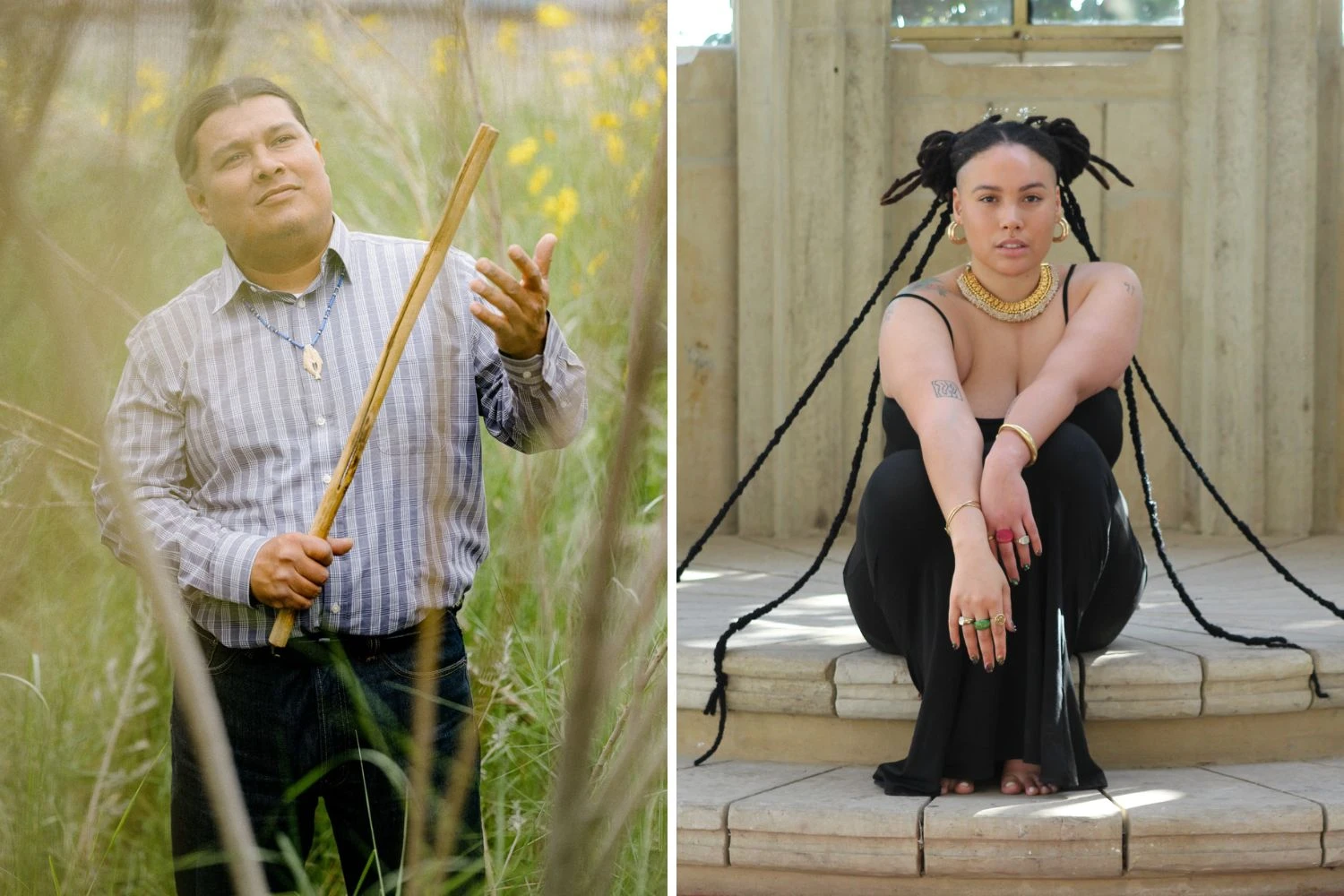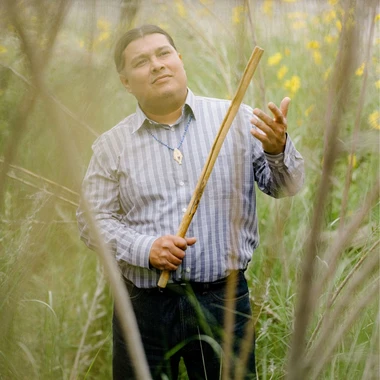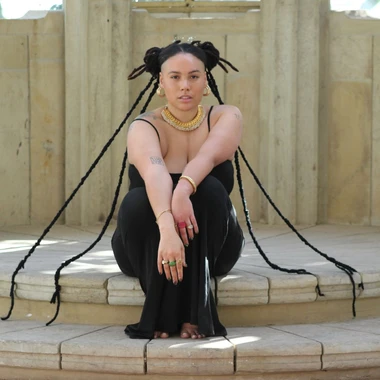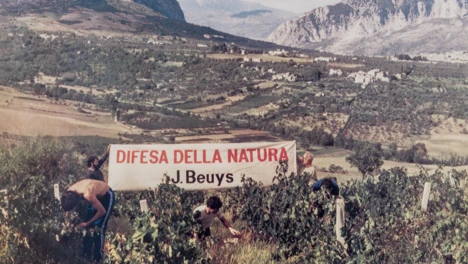
Overview
INDIGENOUS MUSIC, VISUAL, AND SPOKEN WORD PERFORMANCE
Co-presented and co-commissioned by Lunder Institute of American Art and The Broad
A newly commissioned music, visual, and spoken word performance that invites us to consider the meaning and importance of reconciliation, featuring Indigenous musical artists Lynn Daphne Rudolph and Lazaro Arvizu Jr.
Drawing upon The Broad’s reforestation project, Social Forest: Oaks of Tovaangar, South Africa’s Truth and Reconciliation Commission, and Joseph Beuys’s social sculptures in post-World War II Germany, Tongva (Gabrielino) educator and musician Lazaro Arvizu Jr. (Los Angeles) and Khoi Khoi violist Lynn Daphne Rudolph (Johannesburg) will perform a new work that will bring us closer to the land and the practices of its original caretakers as they reveal how their creative practice empower them to reanimate their respective Indigenous cultures. Arvizu and Rudolph will invite the audience into a creative call-and-response and dialogue that engages what reconciliation means today in Tovaangar—or what we now call Los Angeles.
This Lunder Institute @ program is co-presented and co-commissioned by the Colby College Museum of Art’s Lunder Institute and The Broad. Unsettled Voices continues The Broad’s partnership with the Lunder Institute, which will host its annual summer think tanks series 2025, centering performance art in American Art. One think tank will be curated by The Broad’s Director of Audience Engagement Edward Patuto. Unsettled Voices is also part of the Los Angeles residency of The Centre for The Less Good Idea hosted by The Broad, The Nimoy at CAP, UCLA, and The Wallis.

Photos courtesy of the artists
Tickets include same-day access to The Broad. Tickets to this event do not include access to Yayoi Kusama’s Infinity Mirror Room—The Souls of Millions of Light Years Away (2013), and must be booked separately.
For information on our current visitor policies, visit Know Before You Go & FAQ. Visitor policies are subject to change.
Bios

Lazaro Arvizu Jr.
Lazaro Arvizu Jr. makes and plays musical instruments that are Indigenous to Coastal Southern California. The sound influences from his cultural heritage and an interrogation of important topics create a meaningful musical experience. "My music is derived from a conversation of humans and nature interrupted by the urban setting." Arvizu Jr. is an artist, educator, musician, and researcher dedicated to the culture of the first people of Los Angeles. Born in the Los Angeles Basin, he is knowledgeable of the landscape and cosmology of the Gabrielino culture. He has worked for over 20 years facilitating creative and meaningful cultural experiences to people of all ages and walks of life, in many venues. Lazaro has been working with The Broad on its Pacific Standard Time Project, Social Forest: Oaks of Tovaangar, and the accompanying education programs that teach students about Tongva knowledge, ways of living with nature, and the importance of native plants.
Photo courtesy of the artist

Lynn Daphne Rudolph
Lynn Daphne Rudolph is an award-winning violist and internationally acclaimed multi-disciplinary artist from South Africa. Daphne's unique artistic approach examines how sound can serve as a transformative element within the context of Western art practices. Daphne is drawn to sound as protest to express and transmute the injustices of colonialism, apartheid, and imperialism. As a performer whose work is rooted in research, one of the many ways they choose to explore sound as protest, is through improvisation as a form of liberation. “To explore beyond the limitations of conditioned beliefs, is to resist colonial philosophies.” Daphne is the national title holder for the South African Strings Foundation Competition in 2022 as well as the international winner of the Mabel Quick International Competition in 2019. Most recently, Daphne has been awarded the Mail and Guardian prize as the Top 200 Young South Africans for Art and Entertainment. Recent works include Daphne’s sound-based resistance piece, "Dop is my Taal," at William Kentridge’s “Centre for the Less Good Idea,” shedding light on the historical significance of the "dop system" (alcohol system) as a tool for colonialism and the erasure of Indigenous communities. Through this piece, Daphne is able to offer a South African audience the opportunity to explore their own means of resistance towards the apartheid system and question their individual relationship to protest. Daphne stands as a prominent figure in the world of classical music and sound art, using their art to explore, challenge, and contribute to important conversations around identity, colonialism, and social justice.
Photo courtesy of the artist
